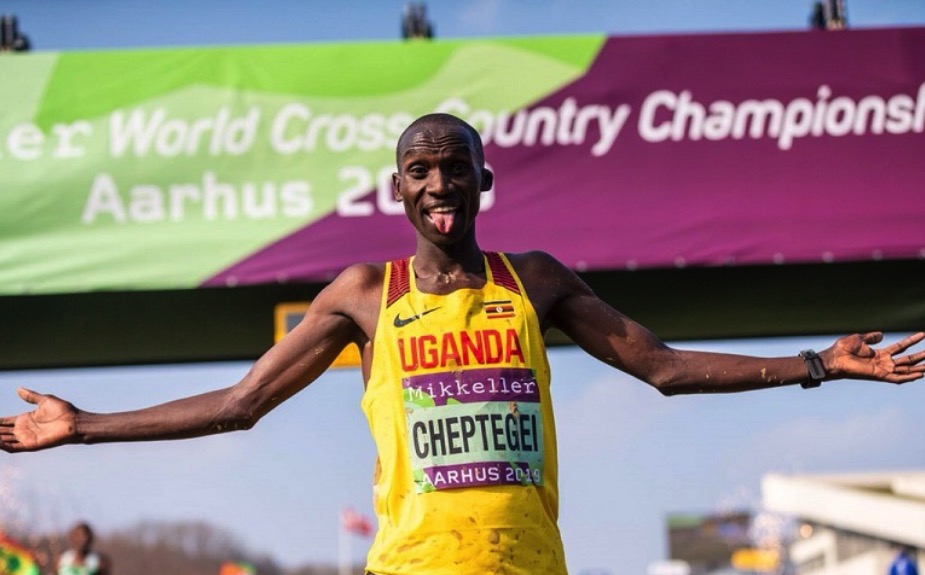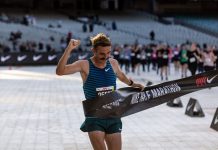“This is a game-changer.”
If I had a dollar for every time this phrase was used about the Aarhus 2019 world cross-country championships – well, you know how the cliché ends. The fact that I’m writing it means that I obviously don’t have a dollar for every time, etc, etc.
The game-changer phrase was on everyone’s lips after the event. If you didn’t utter it yourself, you found yourself endorsing the comments of someone who did. The innovations of these world cross-country championships were many and, wonderful to say, pretty well every one of them worked.
So, a game-changer Aarhus 2019 was: the question is, will it change the game. Has cross-country enjoyed a massive sugar hit, or will the impetus provided by Aarhus reset the way the event is received (by those outside it, that is: insiders already love cross-country).
Beer tents, barrackers’ zones, a Viking village, a water splash, a mud pit and a climb up, and headlong descent down, a museum roof with a 10 percent slope – who knows precisely the impact any, or all, of these had individually. Collectively, though, it re-created the cross-country ‘brand’ as a tough, rugged event. The fact all these elements were incorporated into a 2km loop that was always up or down, never flat, certainly helped.
Whether this perception that cross-country has gone back to its roots will carry over into Bathurst 2021 remains the sixty-four dollar question. Certainly, the physical surrounds at Mt Panorama lend themselves to a physically demanding loop.
In any case, as I wrote last week, Aarhus in prospect even raised speculation that such a course might see the undoing of the long domination of the event by east African individuals and teams.
“For the first time in a long while, it is not just the competitors who are wondering just what tomorrow will bring,” I wrote in my race-eve column.
Despite some hopeful green shoots – not least of them the fifth place by the Australian senior women’s team – this expectation was largely dashed. Indeed, there was more change in the internal east African pecking order, with Uganda taking its first senior men’s individual and team titles and minor medals in U20 and senior women’s, than in the overall order.
It is all but a given that Japan takes the bronze medal in the U20 women but, again, that and the silver to Morocco in the mixed relay, were the only two of 27 medals not to go the way of east Africa. The first 13 athletes and three of the first four teams in the women’s U20 were east African; likewise, the first 11 and all three medallists in the U20 men; the first 14 and first three teams in the senior women; and the first 15 and first five teams in the senior men.
Not much of a dent there, you’d have to say. Individually, a few more non-eat African individuals might have pushed up into the top 20, but it was otherwise pretty much business as usual.
Nor, the honourable exceptions of Great Britain, hosts Denmark and Jakob Ingebrigsten, aside, was there a recognisable increase in the European presence. I saw a spectator wearing a German tracksuit during the afternoon: he had precious little to cheer about. Spain and France continue to fly the flag for Europe, but there was no great influx back from the countries that, increasingly, have chosen to stay away.
Australia’s performance was solid, if not spectacular. The women’s team did well, considering the likes of Madeline Hills, Celia Sullohern, Genevieve LaCaze and Jess Trengove were never available. Eighth for the men, too, was pleasing for a team which never had Morgan McDonald and lost 2017’s leading finisher Patrick Tiernan to injury and Stewart McSweyn on race-eve to an ill-timed virus. Brett Robinson, who finished 30th, continues to impress at world level.
The juniors were rock-solid, too, the women eighth and men ninth of 16 teams in both cases. Lauren Carey was inside the top 20 in the women’s race and Sam Clifford 30th in the men’s. The U20 teams both packed impressively, as did the senior women. From a Bathurst 2021 perspective, these were all encouraging signs.
Australia, and the world cross-country, however, both face the same challenge in two years’ time. Can they nurture the green shoots sprouted in Aarhus into full bloom at Mt Panorama.





























